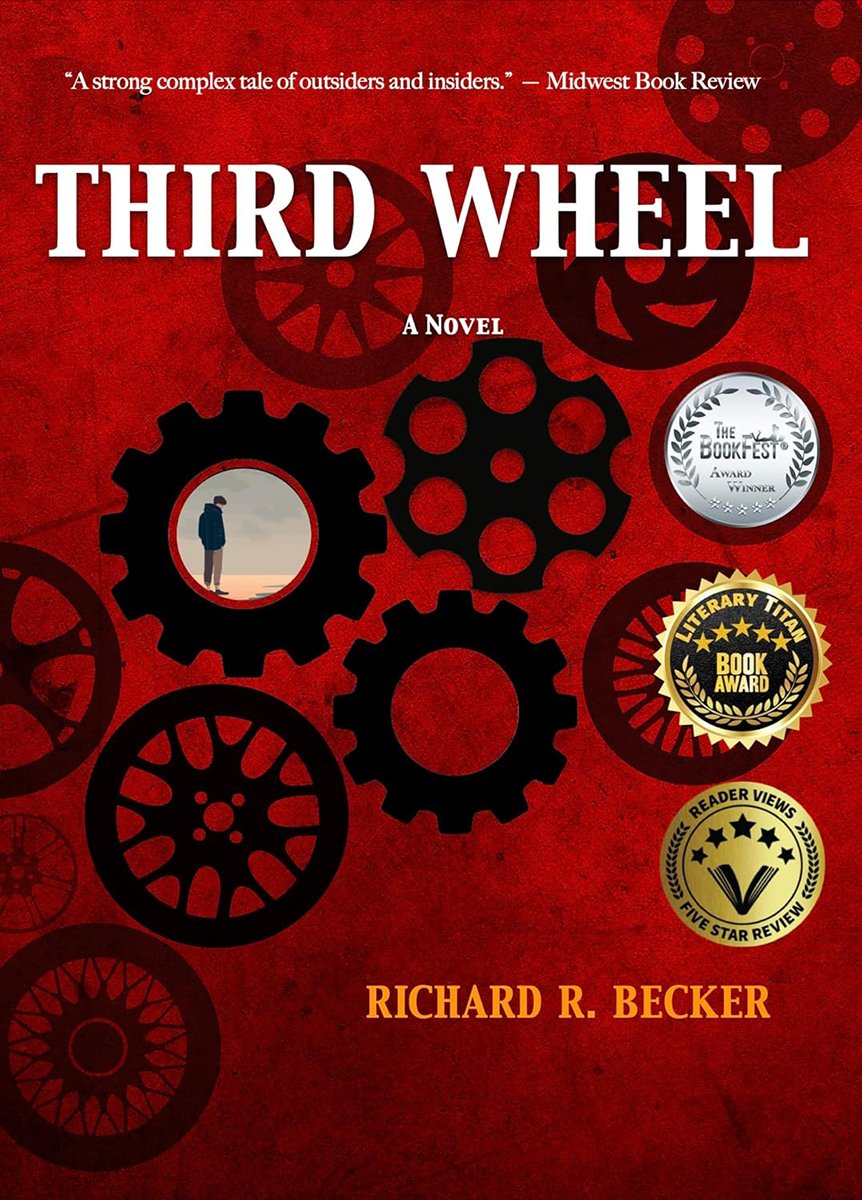Award-Winning Author On His Journey To Literary Excellence
Richard R. Becker discusses his award-winning works Third Wheel and 50 States, his creative process, life influences, and shares invaluable advice for aspiring authors balancing passion and profession.
Richard R. Becker is a literary force to be reckoned with—an author whose works not only showcase his remarkable talent but also offer readers unparalleled insight into the human experience. His debut coming-of-age thriller, Third Wheel, and his groundbreaking short story collection, 50 States, have both cemented his place as an exceptional storyteller, earning multiple accolades and the admiration of readers and critics alike.
What makes Becker’s work truly special is his ability to create rich, layered narratives that resonate emotionally while keeping readers at the edge of their seats. From the suburban shadows of 1982 Las Vegas in Third Wheel to the diverse and vivid landscapes of the United States brought to life in 50 States, Becker demonstrates a mastery of theme, character, and pacing that is nothing short of extraordinary. It’s no wonder Third Wheel claimed Literary Thriller of the Year and won seven literary awards, while 50 States was lauded as an innovative triumph of short-form storytelling.
A big part of Becker’s success lies in his profound life experiences, which inform every page he writes. Whether drawing from his time as a journalist, communication strategist, professor, or public servant, Becker lends authenticity and depth to his characters, often inspired by the diverse socio-economic and political worlds he’s inhabited. He has the rare ability to explore the intricacies of the human condition through fiction in a way that feels deeply personal yet universally relatable.
In this exclusive interview for Reader’s House, Becker opens up about the origins of his acclaimed works, his creative journey transitioning from short stories to novels, and the philosophies that guide his craft. Aspiring writers, take note—Becker also shares invaluable advice for breaking into the literary world and balancing the many roles in his life. It is a privilege to spotlight such an inspiring voice in the literary community, one whose work continues to push boundaries and leave a lasting impact on readers everywhere.
“Richard R. Becker’s storytelling brilliance, authentic characters, and narrative depth make him a beacon of inspiration in literary fiction.”
What inspired you to write “Third Wheel,” and how did you develop the character of Brady Wilks?
I was working on what was meant to be a second short story collection as a sequel to my first book when I wrote a short story called Third Wheel set in the suburbs of Las Vegas, 1982. The story was about a 14-year-old boy being a third wheel in an older friend group, one that was obviously headed for trouble at a time when the mob’s influence in the city was waning, but other nefarious figures were emerging.
As soon as I finished the story, I knew in my heart that this wasn’t a story as much as the first chapter of a debut novel centered around Brady Wilks, a character who shares some of my life experiences. I ultimately made a tough decision to release my second short story collection as a companion of ten stories instead of 50 as planned so I could focus on what became my debut novel.
“Working as a journalist and advertising copywriter influenced me to ensure my work is clear, concise, accurate, human, and conspicuous.” – Richard R. Becker
How did the idea of writing one story a week for 50 weeks evolve into your debut collection, “50 States”?
When it came to writing my short story collection, 50 States, I combined the advice of two colleagues to overcome the time famine that always prevented me from writing fiction. The first was digital marketer, author, and photographer Geoff Livingston, whom I confided in that I was struggling to find time to work on personal projects. Livingston told me the secret was as simple as putting my project first, which I did by starting a short story every Monday before anything else.
I married this advice to a lesson from designer Stefan G. Bucher, who created the Daily Monster. He made one ink monster a day for 100 days by working from nothing but blown ink. I loved the idea of giving myself a deadline, so I set a short story pace of one short story a week for 50 weeks. Initially, I shared these stories on Facebook with a live audience.
“Most aspiring authors never finish a book because they treat writing as a hobby and not a profession.” – Richard R. Becker
What challenges did you face transitioning from short stories to a full-length novel?
The transition was surprisingly seamless because I adopted a similar approach to the one I used to write 50 States. I set out to write one chapter a week until I finished.
In some ways, I looked at every chapter inside Third Wheel as a short story, even if these stories didn’t necessarily have to stand on their own. And I truly enjoyed thinking about the novel three or four chapters ahead as it unfolded. Perhaps the only real challenge was that I felt temporarily done writing about Brady Wilks by the end. I’ll likely put out two or three books before I revisit what comes next for him.
How do your experiences as a journalist and marketer influence your fiction writing?
Working as a journalist and also an advertising copywriter influenced me in two ways. It helped shape my writing in that the rules I learned for journalism and commercial writing still apply to my fiction writing. I’m always looking for ways to ensure my work is clear, concise, accurate, human, and conspicuous.
The second way, and perhaps more profoundly, working as journalist, advertising copywriter, professor, and communication strategist frequently connected me to diverse people from broad socio-economic-political backgrounds at various phases in their lives. And although I prefer my characters to be more accessible, the experience has helped me form insights into the human condition that are worth exploring.
What advice would you give to aspiring authors looking to break into literary fiction or thrillers?
Most aspiring authors never finish a book because they treat writing as a hobby and not a profession. They have to turn that thinking on its head by choosing a plot they can be passionate about and giving it the priority it deserves. If one short story a week, like I did, is too much, commit to one every two weeks or month. Whatever it takes!
How do you balance your writing career with your other roles, such as coaching, teaching, acting, public speaking, and community service?
There’s an old saying that if you want something done, ask a busy person. That said, it’s taken some time, but I’ve learned how to prioritize not just my schedule but my life.
With increased vigor, I look for commitments that help me fulfill myself as a person and benefit others. By focusing my attention on these areas, I’ve been able to think less about what I do and more about why I do whatever it is I’m doing. So, while most people look at all these titles and roles as jobs, I just look at it as another way to fulfill my goals to serve people, make the world a better place, and advance humankind.
EDITOR’S CHOICE
Third Wheel is a captivating, award-winning debut that masterfully blends suspense, emotional depth, and authentic coming-of-age storytelling.
Coming soon



